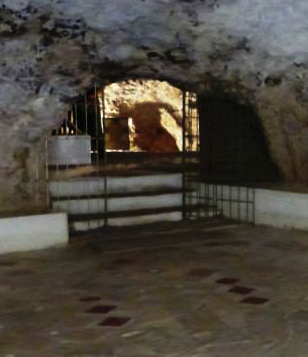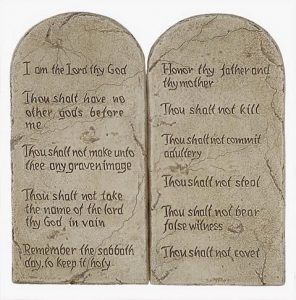 Lenten Journal, Day 4 (First Sunday in Lent)
Lenten Journal, Day 4 (First Sunday in Lent)
I fell in love with science when I was in junior high school. I did well in chemistry and biology and in math classes in high school. I went to a particular university because it was well-known as a training ground for scientists. I wasn’t sure which of the sciences I wanted to go into – marine biology and medicine were both especially attractive, but so too was physics – but I was definitely headed into the sciences. And then I met integral calculus … and ended up getting a degree in literature, then another in business, another in law, and two more in religion.
I am still in love with science; it’s just that I seem incapable of wrapping my head around abstract mathematics. In another universe, I might have been able to do that and might have followed a different path. Perhaps that is why quantum mechanics, superstring theory, and the multiverse fascinate me. I may not quite grasp the math, but the ideas make all sorts of sense to me, especially the notion of multiple universes and alternate realities.
 Lenten Journal, Day 3
Lenten Journal, Day 3 Lent Journal, Day 2
Lent Journal, Day 2 Where to begin?
Where to begin? A wandering Aramean was my ancestor; he went down into Egypt and lived there as an alien, few in number, and there he became a great nation, mighty and populous. – Deuteronomy 26:5
A wandering Aramean was my ancestor; he went down into Egypt and lived there as an alien, few in number, and there he became a great nation, mighty and populous. – Deuteronomy 26:5 Across the Kidron valley from Jerusalem, at the foot of the Mount of Olives, is a small grove of olive trees. In the midst of it is a church called “The Church of All Nations” and in the center of that church, surrounded by a low wrought iron fence sculpted to resemble brambles and thorns, is a large, rough, flat rock. It is called “the stone of agony” and tradition tells us it is the place where Jesus prayed on the night before he died.
Across the Kidron valley from Jerusalem, at the foot of the Mount of Olives, is a small grove of olive trees. In the midst of it is a church called “The Church of All Nations” and in the center of that church, surrounded by a low wrought iron fence sculpted to resemble brambles and thorns, is a large, rough, flat rock. It is called “the stone of agony” and tradition tells us it is the place where Jesus prayed on the night before he died. Today we are commemorating Jesus’ entry into Jerusalem at the beginning of the week that would culminate in his death on the cross of Calvary. Somewhat contrary to common sense, this has come to be called the “triumphal entry.” I don’t know who first applied this term to Jesus making his way from Bethany and Bethphage, through the Kidron Valley, also known as the valley of Jehosophat or the valley of decision, into the holy city. I’ve often thought that whoever it was must surely have been a master of irony, or perhaps of sarcasm, for the procession was anything but a triumph!
Today we are commemorating Jesus’ entry into Jerusalem at the beginning of the week that would culminate in his death on the cross of Calvary. Somewhat contrary to common sense, this has come to be called the “triumphal entry.” I don’t know who first applied this term to Jesus making his way from Bethany and Bethphage, through the Kidron Valley, also known as the valley of Jehosophat or the valley of decision, into the holy city. I’ve often thought that whoever it was must surely have been a master of irony, or perhaps of sarcasm, for the procession was anything but a triumph!
 Here they are. The “Big Ten”! The words of Exodus
Here they are. The “Big Ten”! The words of Exodus The past couple of days, Friday evening and most of the day on Saturday, the vestry and I were on our annual retreat. Our retreat leader was the Rev. Percy Grant, who is on the diocesan staff as the bishop’s canon for ministry. Percy’s been on the diocesan staff for about ten years in basically the same job, but she’s had three job titles.
The past couple of days, Friday evening and most of the day on Saturday, the vestry and I were on our annual retreat. Our retreat leader was the Rev. Percy Grant, who is on the diocesan staff as the bishop’s canon for ministry. Percy’s been on the diocesan staff for about ten years in basically the same job, but she’s had three job titles.

